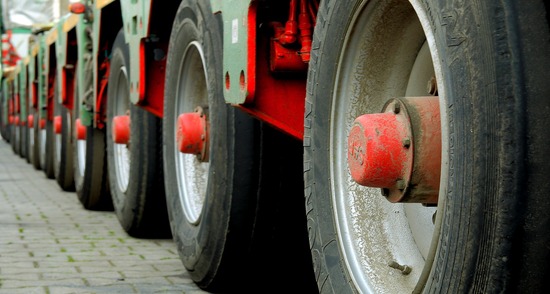Buying commercial trucks isn’t the same as buying passenger car tires. The decision of buying the right type of tires can boost a company’s operations and save money and vice versa.
But how do you find the right type of commercial tires?
Today, we will be discussing the 3 things you need to look out for when buying commercial tires.
7 Things to Check before Buying Commercial Tires
1: Go for All-Season Tires if you are an Urban Driver:
For street driving, all-season truck and van tires are a good option. Off-road or mud tires, on the other hand, are ideal for uneven and/or rocky terrain. Firm sidewalls and a knobby tread pattern are ideal for improving the driving experience and preventing damage when traversing muddy or rocky terrain when selecting off-road tires for your trucks.
Choosing all-season tires will allow you to get the most out of your new tires while also saving money on replacement and other costs. However, we recommend that you consider tire rotation to get the most out of each tire.
2: Don’t Forget the Loading Capacity:
The next thing to know about commercial tires in Oman is their load capacity. As you may know, these vehicles carry a lot of weight, and the tires are under a lot of stress. So, when shopping for new tires online in Oman, keep the load capacity of the vehicle in mind and see if the model can support it. You can always contact some of our EINT Auto tire experts and ask them about the maximum performance each model can deliver under various conditions.
3: Tread Design is Important!:
The tread design is divided into two categories: rib design (also known as closed design) and lug design (or traction design). While rib design includes zigzag or straight moves used on steer and trailer positions, lug or traction tread design includes blocks and grooves designed to increase traction and aggression.
As a result, rib design tires are ideal for wet surfaces as well as pickup and delivery applications that require a lot of turning or maneuvering. For tires used in vocational fleet operations, however, lug or traction tread design is frequently chosen.
4: Consider Fuel Efficiency:
When buying commercial tires, it’s essential to consider their impact on fuel efficiency. Look for tires that are specifically designed to improve fuel economy. Fuel-efficient tires can help reduce operating costs by minimizing fuel consumption, making them a smart choice for commercial truck owners.
5: Durability and Longevity:
Commercial tires need to withstand heavy usage and provide long-lasting performance. Check for tires that are known for their durability and longevity. Look for features such as reinforced sidewalls, puncture resistance, and high-quality tread compounds that can handle the demands of commercial applications.
6: Weather Performance:
Depending on the region and climate conditions where your trucks will operate, it’s crucial to choose tires that offer excellent weather performance. Whether it’s extreme heat, heavy rain, or snow, consider tires with the appropriate tread pattern and compound that provide optimal grip and handling in different weather conditions.
7: Consider Maintenance:
Commercial tires require regular maintenance and occasional replacements. When buying tires, consider the availability of maintenance services, such as tire rotations, alignments, and inspections.
Frequently Asked Questions:
Q: Are commercial tires better than normal tires?
Commercial tires are better for heavy loads and commercial vehicles, while normal tires are better for regular passenger cars.
Q: Can I put commercial tires on my car?
It is not recommended to put commercial tires on a regular passenger car.
Q: What are commercial-grade tires?
Commercial-grade tires are tires designed specifically for commercial vehicles, offering durability and load-carrying capacity.
Q: What is the difference between car and commercial tires?
Car tires are designed for passenger cars, while commercial tires are designed for heavy-duty commercial vehicles, with differences in load capacity, tread patterns, and sidewall strength.



